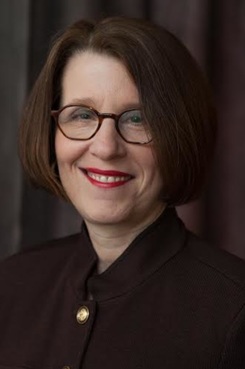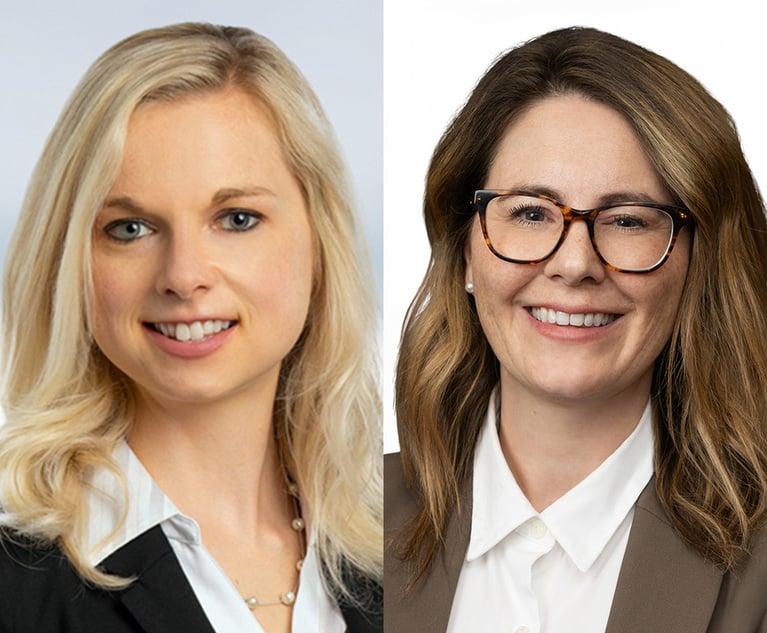The 'Philly Special': A Lesson in Leadership, Teamwork
On the field of life, leadership and team work look a lot like they do on the field of sports. It's all about creating a culture where diverse opinions are actively encouraged, dialogue is ongoing and no idea is ridiculous.
February 21, 2018 at 01:51 PM
7 minute read

On the field of life, leadership and teamwork look a lot like they do on the field of sports. It's all about creating a culture where diverse opinions are actively encouraged, dialogue is ongoing and no idea is ridiculous. This is especially true when intense competition drives the need for innovation, which by its nature involves risk. Trying novel approaches comes with the possibility of failure, but the only other option is continuing to keep going the same way and getting lost in the dust.
As Aristotle said, “The whole is greater than the sum of its parts.” In other words, when individual parts are connected together to form one entity, they are worth more than parts stored in silos. Yet many firms and businesses are set up exactly this way with little idea sharing, connection or cross-selling.
What would it be like to be on a team that creates a culture of inclusiveness and trust where you can bring ideas without fear of being ignored, unappreciated, ridiculed or blamed if the endeavor was unsuccessful? And what might the benefits be in learning to become a team player?
To see the benefits of teamwork, one need look no further than the 2017 Philadelphia Eagles, winner of Super Bowl LII.
This team, it seemed, could not catch a break having lost their young franchise quarterback (Carson Wentz) to a torn ACL that benched him for the season. Heading into the Super Bowl, their head coach was a backup NFL quarterback (Doug Pederson), their offensive coordinator was a backup NFL quarterback (Frank Reich), and the quarterback (Nick Foles) was stepping in for Wentz.
As underdogs, they had to figure out how to beat a dynasty that had captured five Super Bowl victories with their star quarterback Tom Brady. They had to do something different, something the Patriots were not expecting.
An interesting moment occurred during the final 38 seconds of the first half of Super Bowl LII. On “4th and goal,” most teams would have gone for the high percentage three points. But the Eagles decided, instead to go for six points. It was a high-risk, high-reward move that even the announcers questioned. Later, it was revealed that it was Foles who approached Pederson and suggested a play dubbed the “Philly Special.” The play earned the Eagles a touchdown and helped bring them the victory.
Peter King, writing for Sports Illustrated, interviewed Reich who said “the kernel of the idea originated from an industrious Eagles quality-control coach, Press Taylor. Reich said, “Press has this, what we call this vault of trick plays. It's an immense vault, so every week we go into Press' vault looking for plays.””
The Eagles practiced the play without a specific plan for when they were going to use it. In a moment that became immediately iconic, Foles walks up to Pederson to suggest the play and Pederson without missing a beat agrees.
A moment like that does not just happen. The coach had to build a culture and a cushion of respect and trust with his team in order to produce an environment safe for pitching risky ideas.
“The great thing about Doug is he's always going to listen,” Foles told NBC Sports. “It just came to me, it just felt like the right time. It's ultimately his decision, he can say no, but that's the great thing about him. He has confidence in his players, he has confidence in me, and you see on the replay, it's really cool, you just get a little insight into our relationship.”
Indeed. One of the pleasures of re-watching the footage is the collaborative interplay between Pederson and Foles. Pederson obviously respected the quarterback's sense of timing, insight into what was happening on the field and trusted him to make a good decision.
This culture permitted another central ingredient for this high-functioning team—fun. If you Google “team building” a plethora of activities and a common thread that runs through them is practical problem solving coupled with a game designed to get people strategizing together and using their diverse strengths.
Even before the Super Bowl, news outlets were reporting that the Eagles were having fun. According to NJ.com, the last advice Pederson gave his team was this: “We're here and it's just a matter of taking care of business,” Pederson said. “The biggest thing is no one expected us to be in this game and we're here. The pressure is not on us. We'll go out and have fun and battle for 60 minutes.”
When I was a young associate in a law firm, I worked with a partner as second chair on his cases. Whenever we were heading out for court, he would say, with a twinkle in his eye, “Let's go have some fun.” We were heading into battle, but his attitude was always that we could have a good time while working hard.
Patrick Lencioni, author of “The Five Dysfunctions of a Team,” distilled the most common problems on teams to five elements: absence of trust, fear of conflict, lack of commitment, avoidance of accountability and inattention to results.
Regardless of what phase your career is currently in, it is never too early to build leadership skills and become a team player. Here are some tips for building a collaborative team:
- Be someone people can trust. Do what you say you're going to as transparently as possible and follow through. Share your experiences with the group.
- Make it safe to have unfiltered, passionate debates. Conflict is productive on a team when opposing opinions are valued. Respect your team mates and leverage your differences. Be open to all ideas. Appreciate that diversity of perspective can provide more alternatives and options.
- Support the decision that's made once the debate and conflict have been aired. People will not take chances when they expect blame and recriminations and nothing grows without risk. Decisions do not necessarily require consensus, but buy-in will not come unless people have been heard.
- Hold yourself and teammates accountable. This requires a clear plan with measurable outcomes and a person identified as responsible for each one.
- Become results-oriented by putting the team's needs above your own.
- Incorporate fun. I'm not suggesting Hawaiian shirt day at the office, but rather finding ways particular and meaningful to your team to take the edge off, relax and make the work enjoyable and rewarding.
- Be curious. Your team may have unknown strengths, skill sets and ideas that you won't know about unless you dig a little deeper.
- Be flexible. Doug Pederson may not have been thinking of the Philly Special when Foles suggested it, but he adapted on a dime and ordered the play.
The Eagles are an inspiration, to anyone who feels like an underdog, that winning is possible if you look for new ways, are willing to take a risk, and trust your team to have your back. These lessons can be taken from the gridiron to the boardroom, courtroom or whatever field you choose.
Dena Lefkowitz is a certified professional coach who helps clients improve networking and marketing skills, make successful career transitions, and develop the skills necessary to lead. Having practiced law for 25 years in private practice and in-house, she understands the challenges new and seasoned lawyers face. Lefkowitz has successfully coached a best-selling author, lawyers, accountants and chief executives. Firms have also hired Lefkowitz to work directly with lawyers at all phases of their careers to improve performance and increase their contributions to the firm. For more information, visit www.achievementbydesign.com.
This content has been archived. It is available through our partners, LexisNexis® and Bloomberg Law.
To view this content, please continue to their sites.
Not a Lexis Subscriber?
Subscribe Now
Not a Bloomberg Law Subscriber?
Subscribe Now
NOT FOR REPRINT
© 2025 ALM Global, LLC, All Rights Reserved. Request academic re-use from www.copyright.com. All other uses, submit a request to [email protected]. For more information visit Asset & Logo Licensing.
You Might Like
View All
Conversation Catalyst: Transforming Professional Advancement Through Strategic Dialogue
5 minute read
Embracing a ‘Stronger Together’ Mentality: Collaboration Best Practices for Attorneys
6 minute read
Trending Stories
- 1NY No-Fault Insurance Adopts Worker’s Compensation Fee Schedule
- 2With AI Expected to Be a Focus This Year, What Changes Can Midsize Firms Expect?
- 3Dissenter Blasts 4th Circuit Majority Decision Upholding Meta's Section 230 Defense
- 4NBA Players Association Finds Its New GC in Warriors Front Office
- 5DC Circuit Keeps Docs in Judge Newman's Misconduct Proceedings Sealed
Who Got The Work
J. Brugh Lower of Gibbons has entered an appearance for industrial equipment supplier Devco Corporation in a pending trademark infringement lawsuit. The suit, accusing the defendant of selling knock-off Graco products, was filed Dec. 18 in New Jersey District Court by Rivkin Radler on behalf of Graco Inc. and Graco Minnesota. The case, assigned to U.S. District Judge Zahid N. Quraishi, is 3:24-cv-11294, Graco Inc. et al v. Devco Corporation.
Who Got The Work
Rebecca Maller-Stein and Kent A. Yalowitz of Arnold & Porter Kaye Scholer have entered their appearances for Hanaco Venture Capital and its executives, Lior Prosor and David Frankel, in a pending securities lawsuit. The action, filed on Dec. 24 in New York Southern District Court by Zell, Aron & Co. on behalf of Goldeneye Advisors, accuses the defendants of negligently and fraudulently managing the plaintiff's $1 million investment. The case, assigned to U.S. District Judge Vernon S. Broderick, is 1:24-cv-09918, Goldeneye Advisors, LLC v. Hanaco Venture Capital, Ltd. et al.
Who Got The Work
Attorneys from A&O Shearman has stepped in as defense counsel for Toronto-Dominion Bank and other defendants in a pending securities class action. The suit, filed Dec. 11 in New York Southern District Court by Bleichmar Fonti & Auld, accuses the defendants of concealing the bank's 'pervasive' deficiencies in regards to its compliance with the Bank Secrecy Act and the quality of its anti-money laundering controls. The case, assigned to U.S. District Judge Arun Subramanian, is 1:24-cv-09445, Gonzalez v. The Toronto-Dominion Bank et al.
Who Got The Work
Crown Castle International, a Pennsylvania company providing shared communications infrastructure, has turned to Luke D. Wolf of Gordon Rees Scully Mansukhani to fend off a pending breach-of-contract lawsuit. The court action, filed Nov. 25 in Michigan Eastern District Court by Hooper Hathaway PC on behalf of The Town Residences LLC, accuses Crown Castle of failing to transfer approximately $30,000 in utility payments from T-Mobile in breach of a roof-top lease and assignment agreement. The case, assigned to U.S. District Judge Susan K. Declercq, is 2:24-cv-13131, The Town Residences LLC v. T-Mobile US, Inc. et al.
Who Got The Work
Wilfred P. Coronato and Daniel M. Schwartz of McCarter & English have stepped in as defense counsel to Electrolux Home Products Inc. in a pending product liability lawsuit. The court action, filed Nov. 26 in New York Eastern District Court by Poulos Lopiccolo PC and Nagel Rice LLP on behalf of David Stern, alleges that the defendant's refrigerators’ drawers and shelving repeatedly break and fall apart within months after purchase. The case, assigned to U.S. District Judge Joan M. Azrack, is 2:24-cv-08204, Stern v. Electrolux Home Products, Inc.
Featured Firms
Law Offices of Gary Martin Hays & Associates, P.C.
(470) 294-1674
Law Offices of Mark E. Salomone
(857) 444-6468
Smith & Hassler
(713) 739-1250






